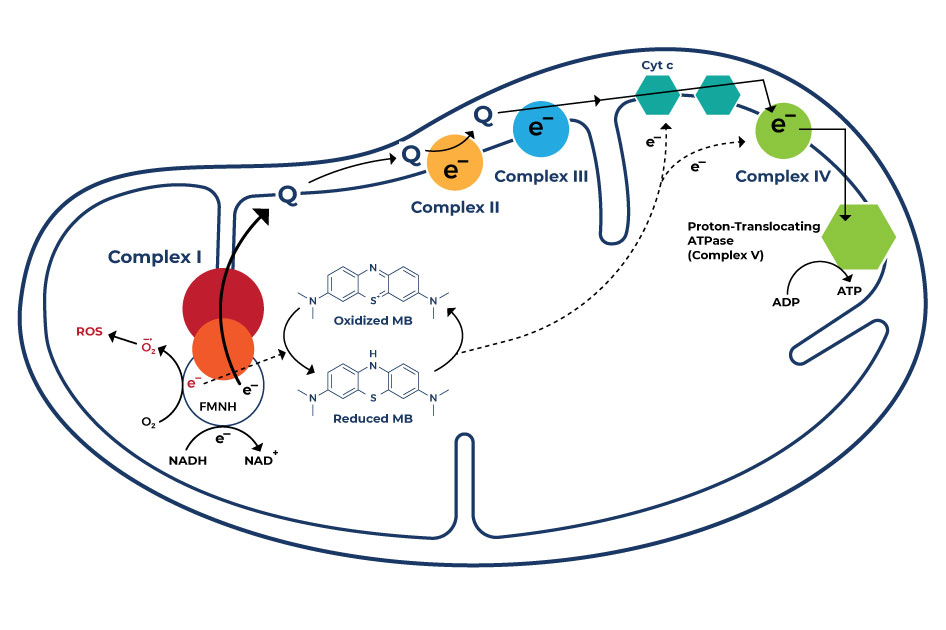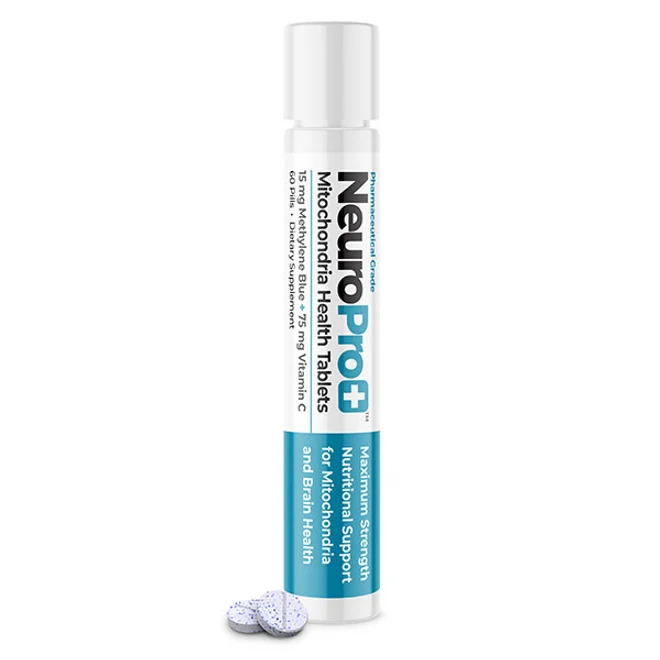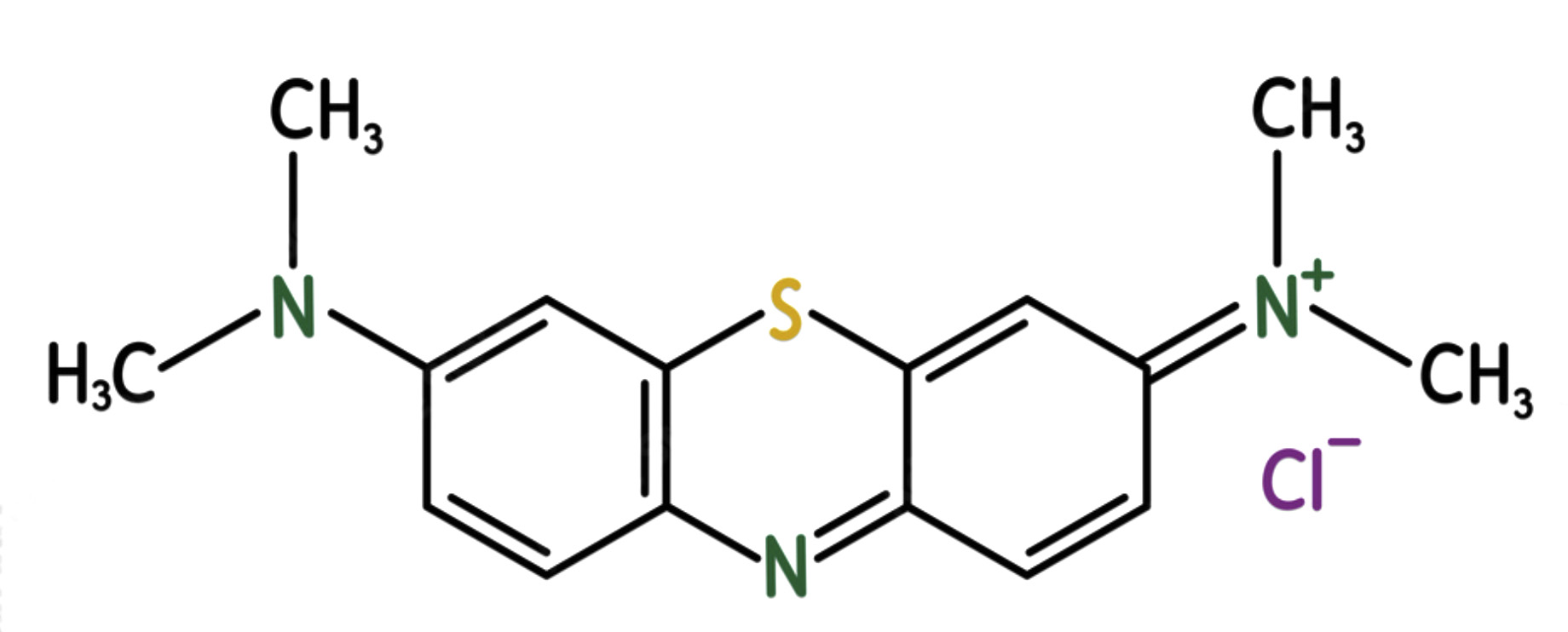How Does Methylene Blue Support Mitochondrial Health

Mitochondrial dysfunction is increasingly recognized as a central player in aging and a host of diseases. Emerging research points to methylene blue as a potential therapeutic agent to combat this decline and bolster cellular energy production.
Methylene blue, traditionally used as a dye and medication, is now being investigated for its remarkable ability to enhance mitochondrial function. This article dives into the science behind methylene blue's positive effects on these cellular powerhouses.
The Powerhouse Connection
Mitochondria are the energy factories within our cells, responsible for producing ATP, the fuel that powers all cellular processes. As we age, or due to various stressors, mitochondrial function can decline, leading to decreased energy production and increased oxidative stress. This is where methylene blue steps in.
Methylene blue acts as an electron cycler, essentially helping mitochondria work more efficiently. It accepts electrons and passes them along the electron transport chain, a crucial step in ATP production, bypassing damaged or inhibited parts of the chain.
How Methylene Blue Works: The Electron Shuttle
Specifically, methylene blue can donate electrons to cytochrome c oxidase, a key enzyme in the electron transport chain. This helps to maintain the flow of electrons, even when other components are compromised. This process enhances ATP production and reduces the formation of harmful free radicals.
Research indicates that methylene blue can improve mitochondrial respiration, meaning the mitochondria become better at using oxygen to generate energy. It does this by supporting the enzymatic processes involved in the electron transport chain.
Moreover, methylene blue can also act as an antioxidant, directly scavenging free radicals and reducing oxidative stress within the mitochondria. This dual action protects mitochondria from further damage and supports their overall health.
Clinical Evidence and Studies
While research is ongoing, several studies have demonstrated the potential benefits of methylene blue for mitochondrial health. A 2017 study published in "Aging (Albany NY)" found that methylene blue improved cellular respiration and reduced oxidative stress in human skin cells.
Another study published in the "Journal of Alzheimer's Disease" in 2008 showed that methylene blue improved mitochondrial function and cognitive performance in patients with mild to moderate Alzheimer's disease. This suggests a potential role in neurodegenerative diseases where mitochondrial dysfunction is a key factor.
Furthermore, research has indicated that methylene blue can improve cognitive function in healthy individuals as well. Improved memory and attention spans have been observed in studies involving healthy adults.
Who Can Benefit?
While more research is needed, the potential benefits of methylene blue extend to various populations. Individuals experiencing age-related cognitive decline, those with neurodegenerative diseases, and even healthy individuals looking to boost cognitive function may potentially benefit.
However, it's crucial to remember that methylene blue is not a magic bullet. It is essential to consult with a healthcare professional before considering methylene blue supplementation.
Dosage and Safety Considerations
Dosage is a critical factor when it comes to methylene blue. Studies have used varying dosages, ranging from low doses (less than 1 mg/kg body weight) to higher doses (up to several mg/kg body weight).
It is vital to start with a low dose and gradually increase it under the guidance of a healthcare professional. Potential side effects can include nausea, headache, and dizziness, especially at higher doses.
Methylene blue can interact with certain medications, particularly antidepressants and selective serotonin reuptake inhibitors (SSRIs). It is imperative to inform your doctor about all medications you are taking before starting methylene blue.
Ongoing Research and Future Directions
Research into the benefits of methylene blue for mitochondrial health is rapidly evolving. Currently, scientists are exploring its potential in treating a wider range of conditions, including Parkinson's disease, traumatic brain injury, and heart disease.
Future studies are needed to determine the optimal dosage, long-term effects, and potential risks associated with methylene blue use. Large-scale clinical trials are crucial to confirm its efficacy and safety.
The National Institutes of Health (NIH) is actively funding research into the therapeutic potential of methylene blue. The focus is on understanding its mechanisms of action and identifying specific patient populations that may benefit most.
Conclusion: A Promising Avenue, Proceed with Caution
Methylene blue shows significant promise as a potential agent to support mitochondrial health and combat age-related decline. However, it is essential to approach its use with caution.
Further research is needed to fully understand its benefits and risks. Always consult with a healthcare professional before considering methylene blue supplementation to determine if it is right for you and to ensure safe usage.
Stay tuned for further developments as researchers continue to unravel the potential of this intriguing compound. The future of mitochondrial medicine may very well depend on it.


















